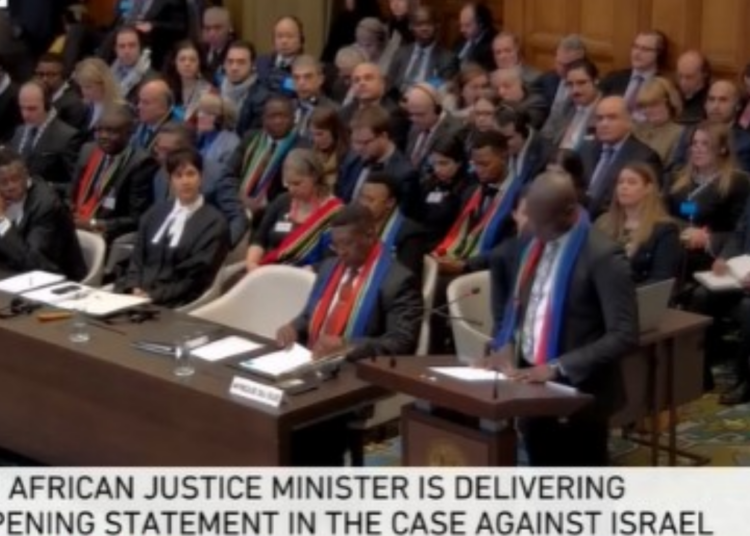The two-day public hearing in South Africa’s genocide case against Israel at the International Court of Justice (ICJ) began on Thursday. The South African government brought the case against Israel on December 29, accusing it of “genocidal acts” in its assaults on Gaza.
Palestinians and pro-Palestine campaigners around the world are hoping the ICJ might halt Israel’s devastating military campaign in Gaza, which has seen more than 23,000 people killed – nearly 10,000 of them children.
The ICJ, also called the World Court, is the highest United Nations legal body that can adjudicate on issues between member states. It is separate from the International Criminal Court (ICC), which tries individuals in criminal cases.
The ICJ comprises 15 judges appointed for nine-year terms through elections at the UN General Assembly (UNGA) and the Security Council (UNSC). The court’s rulings are binding and cannot be appealed by member states, but it depends on the UNSC to enforce the decisions.
South Africa’s Accusations
South Africa has accused Israel of committing the crime of genocide in Gaza in violation of the 1948 Genocide Convention, which both countries are party to.
The killing of Palestinians in Gaza in large numbers, especially children; destruction of their homes; their expulsion and displacement; blockade on food, water, and medical assistance to the strip; the imposition of measures preventing Palestinian births by destroying essential health services crucial for the survival of pregnant women and babies, are all listed as genocidal actions in the suit.
South Africa is requesting that the ICJ move urgently to prevent Israel from committing further crimes in the strip using “provisional measures” – essentially an emergency order that can be applied even before the main case begins.
It argues that provisional measures are necessary “to protect against further, severe and irreparable harm to the rights of the Palestinian people under the Genocide Convention, which continue to be violated with impunity”.
Israel, which has lambasted South Africa for bringing the case, has promised to defend itself at the court. Senior Israeli officials, including President Isaac Herzog, have called the case “preposterous” and say it constitutes a “blood libel”.
Analysts believe Israel is likely to argue that its killing of more than 23,000 people in Gaza is in self-defence. Herzog, speaking to visiting US Secretary of State Antony Blinken on Tuesday, said Israel “will present proudly our case of using self-defense under our most inherent right under international humanitarian law”.
Several countries and organizations have backed South Africa’s suit. Malaysia, Turkey, Jordan, Bolivia, the Maldives, Namibia, Pakistan, Columbia, and members of the Organisation of Islamic Countries (OIC) are among them.
The European Union has been silent, but Israel has seen support from its number one backer and weapons supplier, the United States.
Department of State spokesperson Matt Miller said in a statement the “allegations that Israel is committing genocide are unfounded”, but he added that Israel must “prevent civilian harm” and investigate allegations of humanitarian crimes.





